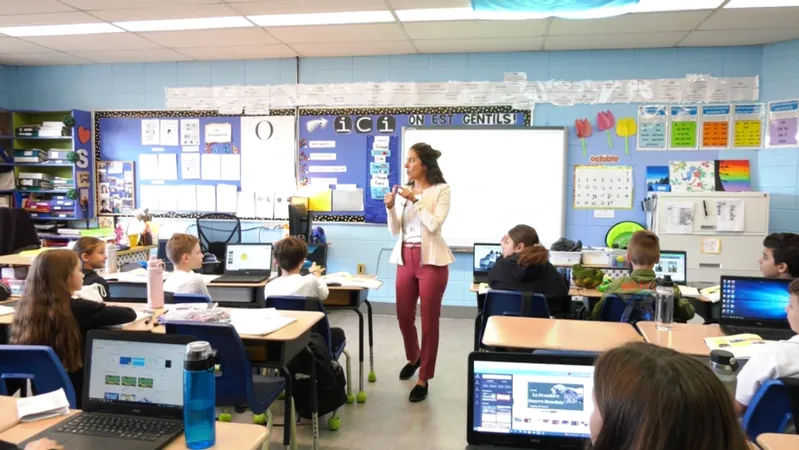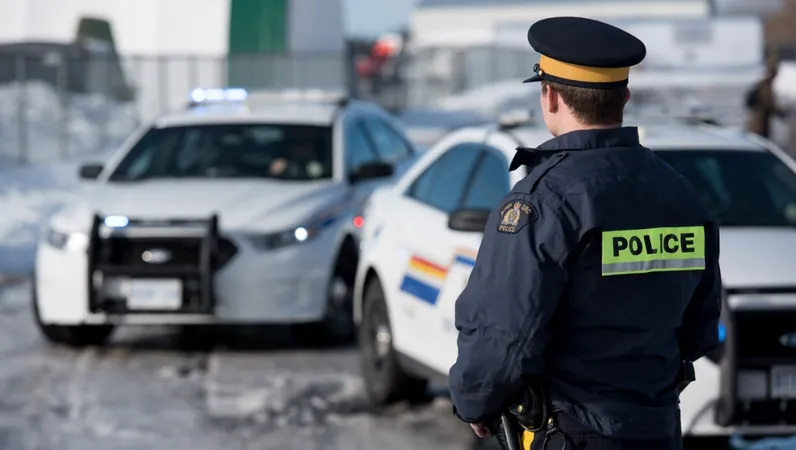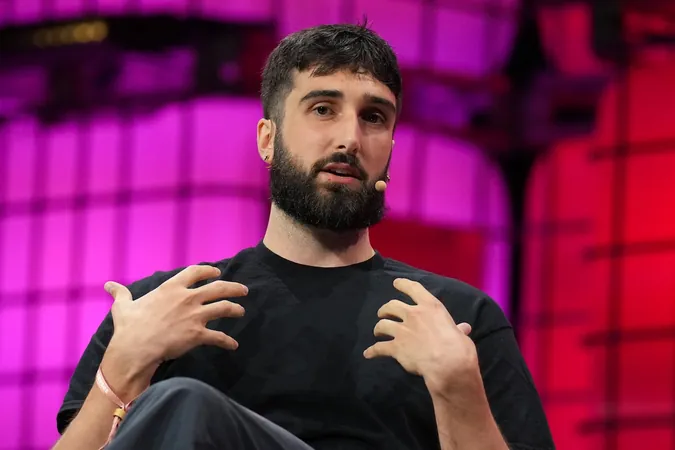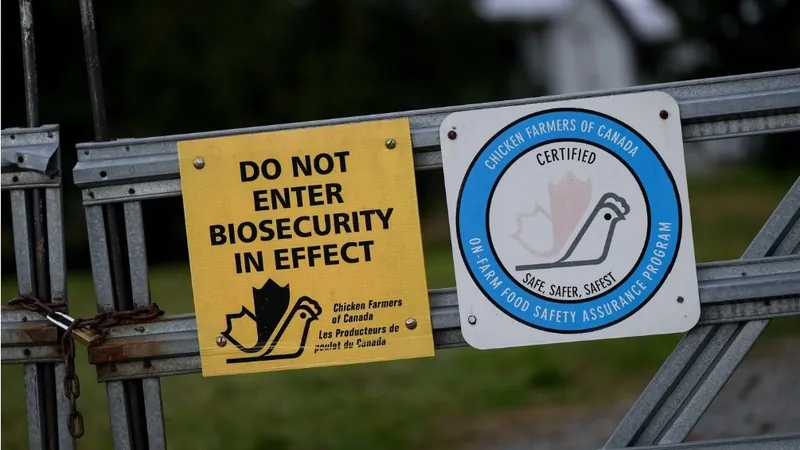
Crisis in Classrooms: Thousands of Underqualified Teachers Flood Quebec Schools
2025-01-11
Author: Emily
A Daunting Crisis in Quebec's Education System
In Quebec, a daunting crisis is unfolding in the education system as a significant number of teachers operate without official certification. Monique Henry, a dedicated English teacher in St-Jérôme with nearly 20 years of experience, epitomizes this struggle, having never completed a university education program. “You kind of just do it on the fly and learn with time,” said Henry, reflecting on her challenges managing unruly classrooms.
Surge in Non-legally Qualified Teachers
Currently, as the demand for educators continues to rise, the number of non-legally qualified teachers has surged dramatically. Education experts have raised alarms about the implications of this trend, warning that it threatens the quality of education and puts additional strain on school staff already grappling with exhaustion.
As of December 2023, the Quebec Education Department reported 9,184 non-legally qualified teachers in public schools, a staggering rise from 8,871 just months earlier. This number excludes a vast number of substitutes, which means the actual figure is likely much higher. In fact, a 2023 report from Quebec’s auditor general highlighted over 30,000 non-legally qualified educators in the educational network, representing over 25% of all teachers.
Lowering Certification Requirements
The provincial government’s response to an ongoing teacher shortage has lowered the certification requirements, but this has created a paradox—there is little incentive for these uncertified teachers to pursue formal qualification when job opportunities abound regardless of educational background. Nicolas Prévost, president of the Quebec federation of school administrators, estimates that this trend will worsen as enrollment in teacher training programs declines and retirements among certified teachers increase.
Concerns About Student Learning
Jean-Geneviève Sirois, a professor at Université TÉLUQ, echoed concerns that depending on non-legally qualified teachers compromises student learning. For example, a first-grader who struggles with reading might receive inadequate instruction from a teacher lacking foundational educational principles.
Challenges of Unprepared Substituting
Montreal-based teacher Matthieu Théorêt, who prefers the flexibility of substituting, noted the challenges of entering classrooms unprepared after the school year begins. “You are often relying on the classwork and resources provided by your colleagues,” he lamented, revealing the heavy workload this places on certified teachers who are often stretched thin.
Initiatives for Improvement
To combat this situation, new university programs have been initiated to expedite teacher certification. The provincial government is also providing provisional teaching licenses to individuals enrolled in training programs. However, the financial appeal of remaining uncertified remains strong, with many non-legally qualified teachers receiving similar pay to their certified counterparts.
Significant Financial Investments
In a bid to address staffing deficiencies, Quebec is investing substantial resources—$39.6 million to enhance part-time positions, $37 million to retain retired educators, and another $37 million aimed at supporting teaching staff.
A Ray of Hope
Amid this turmoil, Monique Henry has embarked on a path to finally obtain her teaching license. She was drawn back to teaching after a stint as a 911 dispatcher and has enrolled in a remote-learning bachelor’s degree program at Université de Sherbrooke. “I always wanted to go into teaching,” she said, highlighting a flicker of hope in an otherwise troubling landscape.
The Call for Educational Reforms
As Quebec grapples with these challenges, the realities of classroom conditions and the qualifications of teachers provide a poignant reminder of the critical need for effective educational reforms. Parents and concerned citizens are left asking: what will it take to ensure that every child receives the quality education they deserve?









 Brasil (PT)
Brasil (PT)
 Canada (EN)
Canada (EN)
 Chile (ES)
Chile (ES)
 Česko (CS)
Česko (CS)
 대한민국 (KO)
대한민국 (KO)
 España (ES)
España (ES)
 France (FR)
France (FR)
 Hong Kong (EN)
Hong Kong (EN)
 Italia (IT)
Italia (IT)
 日本 (JA)
日本 (JA)
 Magyarország (HU)
Magyarország (HU)
 Norge (NO)
Norge (NO)
 Polska (PL)
Polska (PL)
 Schweiz (DE)
Schweiz (DE)
 Singapore (EN)
Singapore (EN)
 Sverige (SV)
Sverige (SV)
 Suomi (FI)
Suomi (FI)
 Türkiye (TR)
Türkiye (TR)